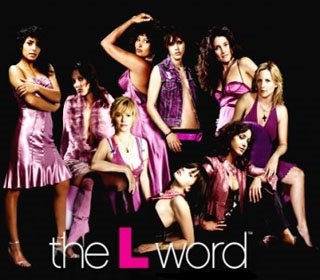I just thought I’d put some feelers out not for the first time, but for the first time online, to see if my theory is true that I am only only man in the known universe who enjoys the (now-finished) Showtime drama series The L-Word. If I’m not, will somebody let me know!
I have an ongoing experience when I tell people about the series. I explain what it is and why I like it. Evidently my enthusiasm is sufficient to grab the interest of whoever I’m speaking to, because many of them will then go and watch it. What happens then divides strictly down gender lines. Virtually every woman I’ve introduced to the show goes on to watch and enjoy it, and virtually every man – except me – goes on to watch it and hates it. What gives?
I’ve jokingly said before that among my male friends, the gay ones don’t like it because there’s too much lesbian sex, and the straight ones don’t like it because there’s too little. That’s pretty cynical, I know, and I’m not convinced it’s true: after all, if this was genuinely among the major criteria for favouring or disfavouring a drama series, well, then most of my male friends wouldn’t watch any at all, and that certainly isn’t the case.
Maybe I’m just mis-selling it. I’m pretty much following the TV guide description when I tell folk about it: it’s a show about a group of (mostly lesbian) friends in LA – major themes are relationships, sex, sexuality, discrimination, social class, career, and art. That pretty much covers it. It’s compelling and intricate, and I’m honestly at a loss to explain the clear gender boundary between those who do and those who don’t enjoy it.
Ruth proposed to me that it could be to do with the way that women communicate: much of the impact of the show comes from the way that the characters share their feelings – more in subtle ways like choice of language and body language than in the actual face-value dialogue. Her thinking here is that (whether because of our biology or our upbringing), us gents aren’t as capable of picking up on these cues, which form a baseline of the action in the series. It’s possible, I suppose: most of the show’s producers and many of the scriptwriters, as well as most of the cast, are female and so would be expected to have this mysterious superpower. But it fails to explain how the show appeals to me… and to whichever other men enjoy it: I’m hoping that if I hear a positive response back from any, that we might be able to work it out together.
In any case, it’s a conundrum: if you’ve got any ideas, let me know. And if you haven’t, go watch the show and see if you can work it out. Careful with the spoilers, if you’re ahead of me (I’m half-way through season 3, with its fabulous guest star Alan Cumming).
This blog post has nothing to do with my earlier post, Women In Movies, although if you enjoyed this one you might like that one, too.
